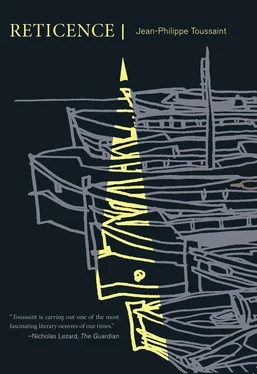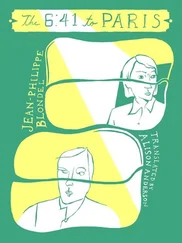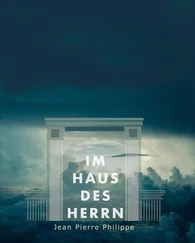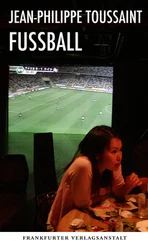I’d gone inside the villa, and made my way slowly through the ground floor trying to get my bearings in the darkness. Anyone home? I called out. Stopping at the living room door I saw the stone fireplace at the other end of the room, barely distinguishable beside the dark shapes of three leather armchairs around a coffee table. There wasn’t a sound in the room, and I walked slowly over to Biaggi’s study and softly opened the door. I felt around for the light switch and, not finding it, I lit my lighter and saw in the glow of the flame that the letters were lying on the desk. There they were, the three letters I’d returned that morning, lying side by side on Biaggi’s desk. So someone was in the house right now, someone who knew I was there? I left the room immediately and, walking past the large wooden mirror in the entrance, I saw a furtive silhouette pass by in the blackness, dressed in a dark coat and tie.
The night sky was immense and dark, and several long black clouds slid slowly across the halo of the moon. I’d gone upstairs to the Biaggis’ bedroom, and as no one was there I’d gone over to the window and opened the shutters. It seemed I was all alone in the house, and I stood there at the window of the Biaggis’ bedroom. The garden in front of me was silent, and from time to time the long luminous beam from the lighthouse on Sasuelo Island whisked across the sky behind the treetops. The gates to the property were dimly lit by the moon at the end of the driveway, and I thought that Biaggi — because Biaggi must have known I was in the house — would no doubt not be long in returning, and that any minute now I would see the old gray Mercedes pull up in the night in front of the gate, with its motor running and headlights blazing, lighting up the irregular stones of the wall around the property. I would still be standing at the window of the room and I’d see Biaggi get out to open the gate. I wouldn’t move and I’d watch as he got back into the car and, when the old gray Mercedes entered the park, Biaggi would suddenly see my silhouette in a dark coat and tie standing at his bedroom window in front of him in the night.
I’d gone back downstairs and sat down for a moment in the living room without taking off my coat. The windows in front of me were very black, and behind them the lowered metal blind didn’t let in the least bit of light. Around me in the darkness I could make out the silent contours of the furniture, the couch and the other armchairs, the bookshelves lining the walls. I sat there alone in the Biaggis’ villa and didn’t move, pricking up my ears at the slightest sounds from outside, the numerous nocturnal creaking sounds I thought I could hear coming from the garden, when I spied two little points of light shining in the darkness at the other end of the room, one red light and one green light glowing on the bottom shelf of the telephone table. Getting up and walking over to the table, I saw there was an answering machine set up in the villa. I crouched down for a moment in front of it and saw that apparently there were no messages, the tape was still wound back to the beginning. Cautiously I pressed one of the buttons with my finger and heard Biaggi’s voice resound in the utter silence. Biaggi’s voice rang out in front of me — Biaggi’s voice — vivid, close, and at the same time terribly distant. You have reached eight five three, one three four three. We’re not in right now but you can leave a message after the. I’d managed to stop the message and the house was once more engulfed in an absolute silence that was all the more disturbing as I didn’t move a muscle.
I’d finally left the house and was walking back to the hotel when I saw a black cat on the side of the road. It was close to the garbage dump, staring at me with its ears pricked, and lying at its feet was a long fish skeleton it had just pulled from a plastic bag. It was no more than five yards away, and I had the feeling it would run off if I made the slightest move in its direction. It didn’t flinch and was no doubt waiting for me to leave, staring at me in the night with deep green eyes that were finely speckled with yellow. But what troubled me the most was that it wasn’t the first time I’d seen that look, that it was a look I’d already seen, one night on the jetty down at the port. And the hotel owner must have seen the very same look the night before in the hotel dining room, because this must have been the cat he’d told me about that morning, the one that had entered the dining room through the sliding window and prowled around in the darkness, slipping stealthily between the tables, its luminescent green eyes shining in the dim light of the moon, before making off as soon as the owner came in.
I’d gone down to the port and was standing at the end of the jetty, my coat pulled tightly around me. I couldn’t hear a single sound in the port, just the murmur of the water close at hand and the sound of the waves breaking against the rocks, and I looked out at Sasuelo Island, far off and barely visible in the darkness. The lighthouse beam swung over the surface of the water, and I watched the long shaft of light thinking I’d never be able to get to sleep if I didn’t go to bed now. Already the night before the long, luminous beam of the lighthouse on Sasuelo Island had turned all night in my sleep with a throbbing regularity, sweeping away the darkness and then moving off before reappearing immediately under my eyes without leaving me the least respite. It was always the same dazzling cone of light that suddenly surged forth and grew quickly in the darkness before brutally blinding me for an instant, after which I waited in dread for the next time it came around, soon seeing nothing more than my own panic-stricken face on the edge of sleep, my eyes piercing the blackness, my pupils constantly dilating and contracting with each passage of the beam of light, I lay there staring in front of me, powerless and uneasy, wide-eyed in the night. Because in fact Biaggi was on Sasuelo Island. Dressed in a wet sailor’s jacket, Biaggi’s stiff, decomposing corpse was on Sasuelo Island at that moment. After floating for a while chest-up in the black water of the port, it must have been fished out and heaved on board a fishing boat that had left the harbor under the same moonlight as tonight, exactly the same, with the same black clouds sliding across the sky. The boat had then putted slowly across to Sasuelo Island, and when it finally arrived at the rugged coastline it had docked gently at a small landing at the edge of the water, and Biaggi’s corpse had been unloaded onto the shore under the silvery moonlight, his bloated bluish face violently illuminated by the beam of the lighthouse whose high, silent outline rose up overhead in the night. Then, slowly, the body had been tugged along the little path leading up the rock face to the lighthouse. And there, in the utter darkness, it had been dumped on the ground below the automatic control instruments of the lighthouse that flickered on and off in the night, face up and arms spread wide, where it still lay.
It wasn’t yet midnight when I got back to the hotel, and walking down the hall I saw there was still a light on under the owners’ door. My son didn’t stir when I entered the room. He was sleeping peacefully in his travel cot, and I went slowly over to the window and pulled back the curtain. I stood at the window of my room in my dark coat and tie, looking out onto the road that led off in the night toward the Biaggis’ house. I could have telephoned the Biaggis right now if there’d been a phone in my room, I thought. The phone would have rung in the deserted living room of the villa, and after several seconds the answering machine would have switched on and I would have heard the sound of Biaggi’s voice in the receiver, Biaggi’s flat voice coming from far off in the night. You have reached eight five three, one three four three. We’re not in at the moment but you can leave a message after the — and I would have hung up without leaving a message.
Читать дальше












